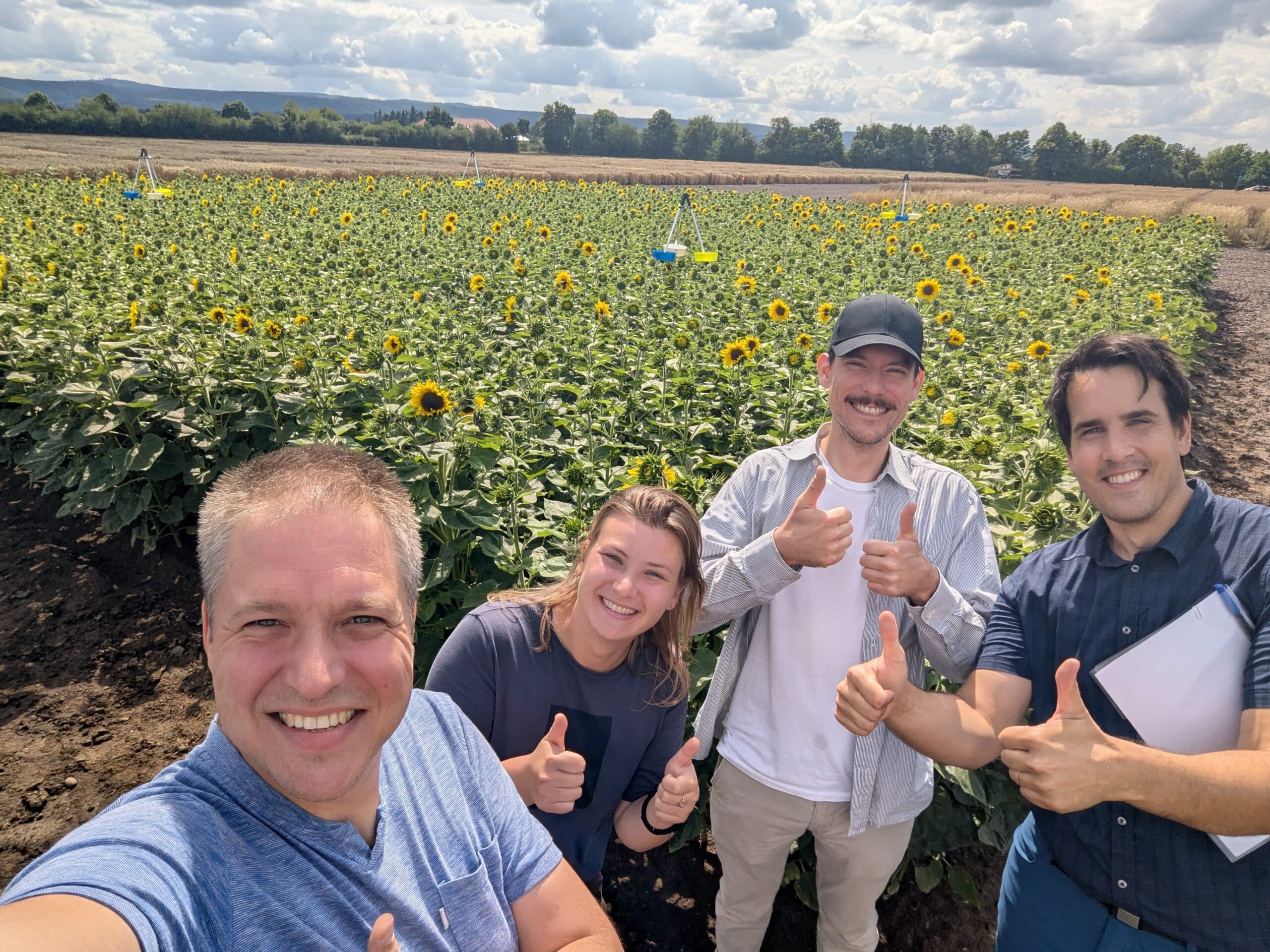Facing climate change
with a new generation
of sunflowers
HelEx
HelEx aims to produce knowledge and tools to accelerate the breeding of sunflower varieties adapted to extreme drought and heat stresses and evaluate their environmental impact and economic outputs.
More about HelEx
Why HelEx ?
This project emerges in an ecological context where climate change has already had a significant impact on sunflower seed production and quality, with potential yield reductions of -20% to -50% depending on the region in Europe1.
The main aim of this project is to use extremophilic species of wild Helianthus, the grouping of sunflowers and Jerusalem artichokes, to create sunflower varieties that are more resistant to the impacts of global warming, notably drought and high temperatures.
Over the past 15 years, extensive work has revealed the sunflower genome and identified the genes that enable varieties to respond to stress and understand the impact on yield. However, very little is known about the effects of climate change on pollinator ecosystem services such as pollen and nectar production.
1 Moriondo et al., 2010 Mitigation and Adaptation Strategies for Global Change. Impact and adaptation opportunities for European agriculture in response to climatic change and variability.


